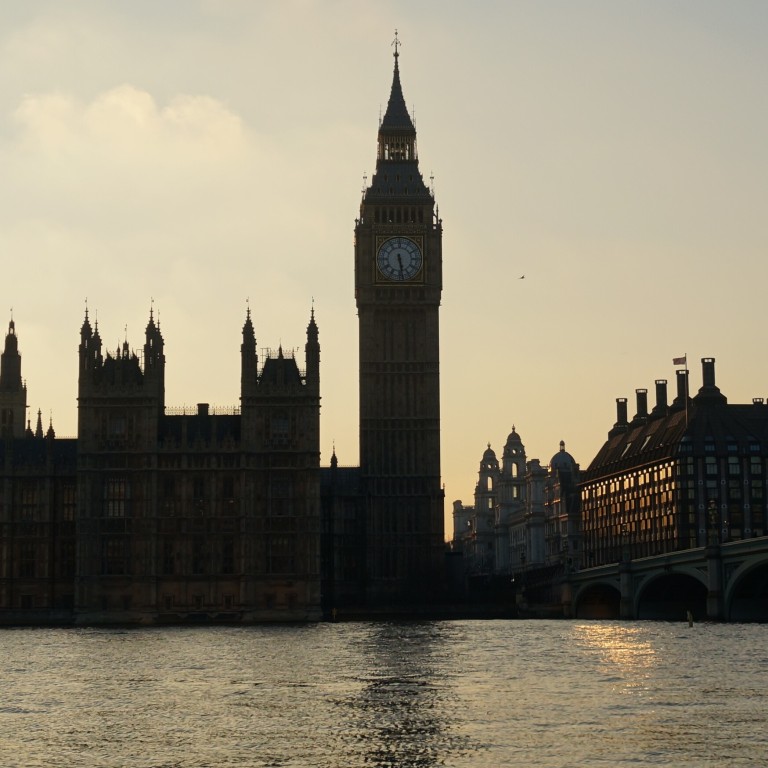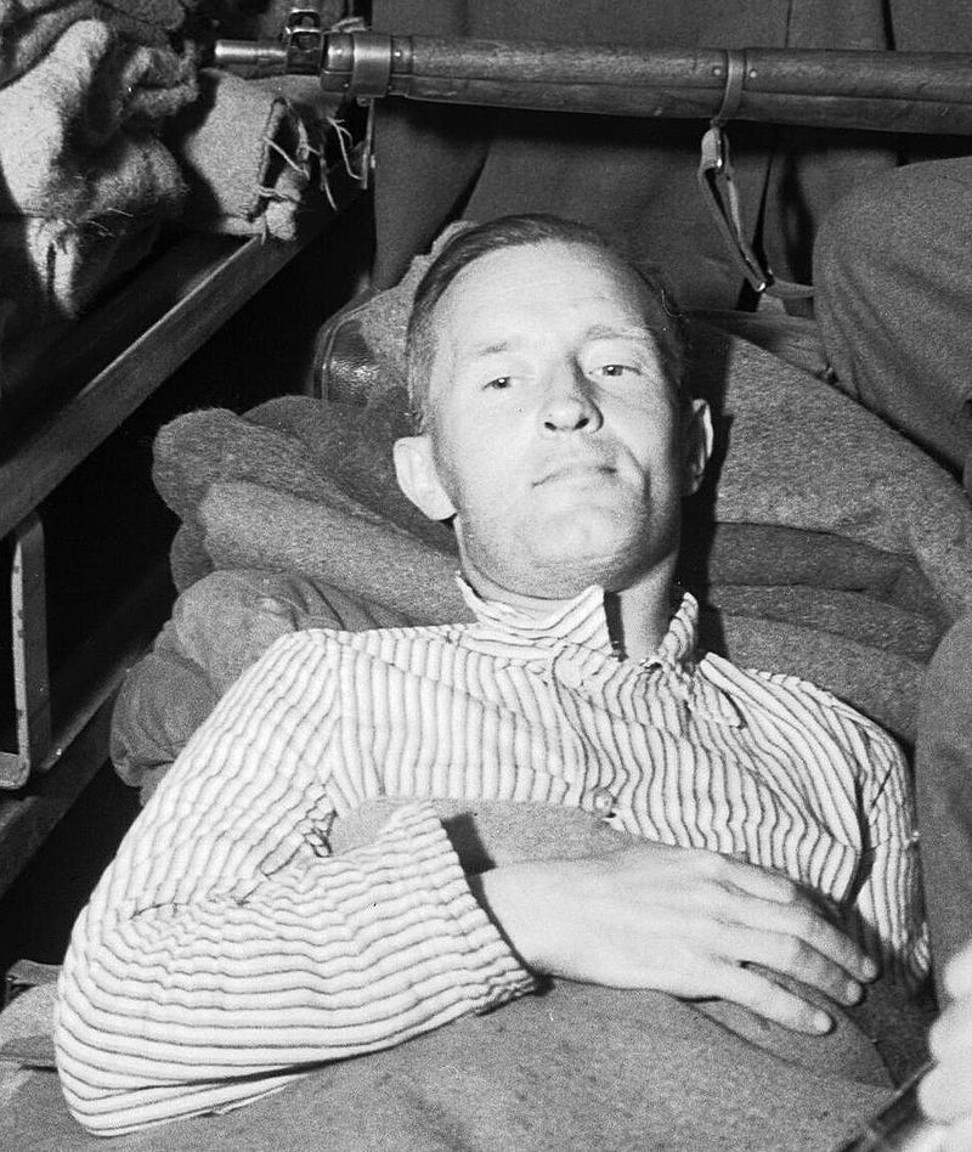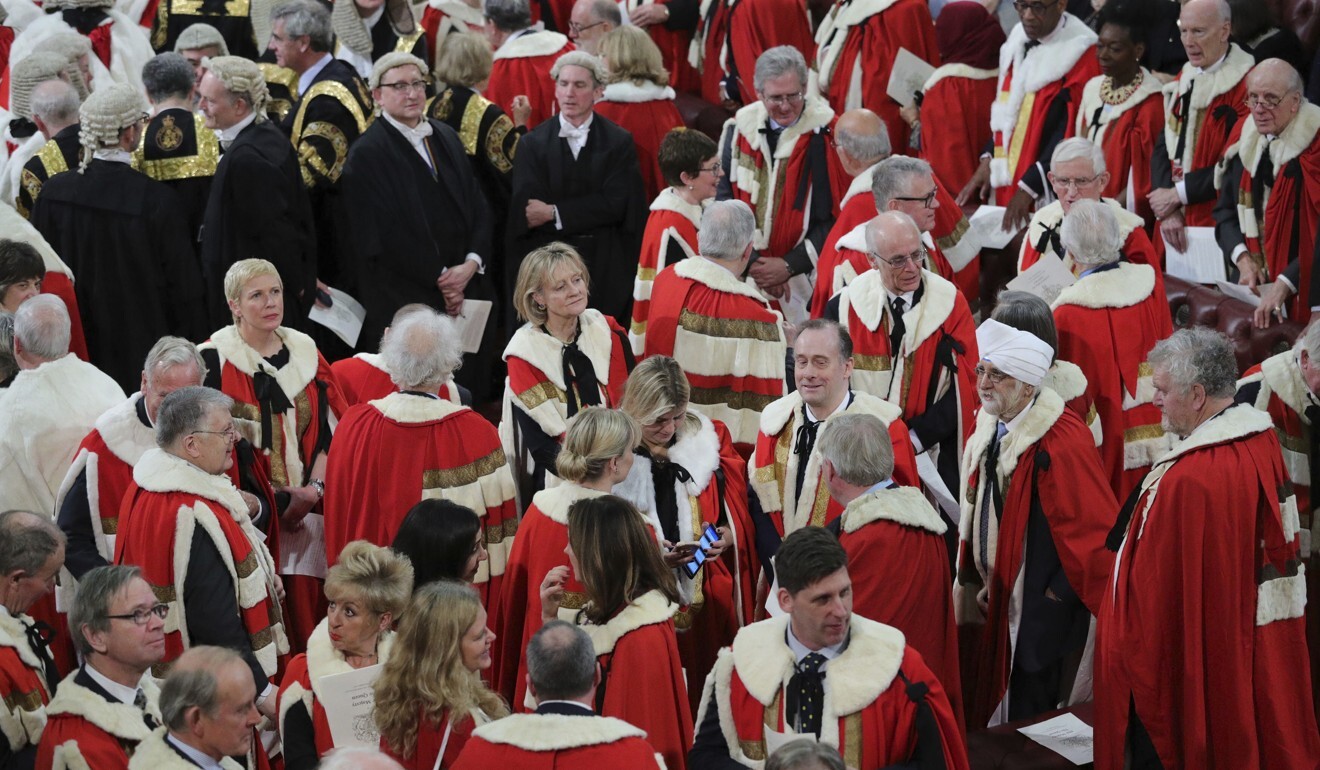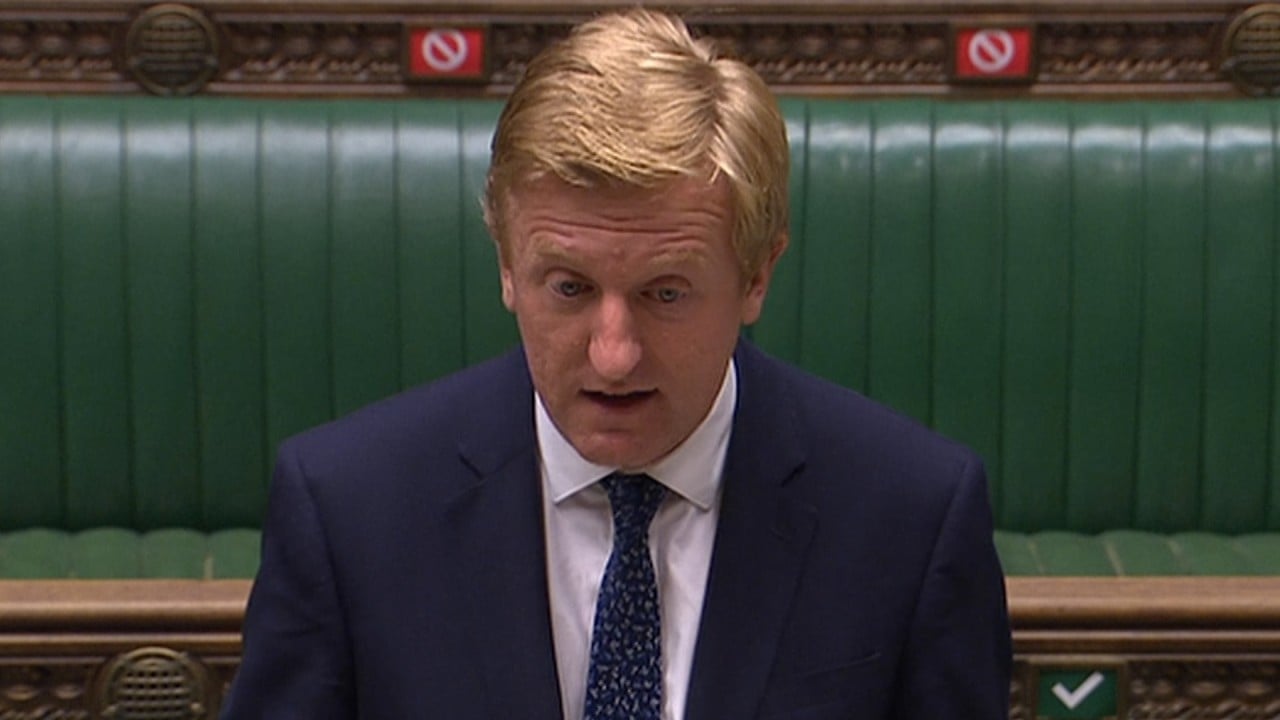
The UK plan to root out spies and traitors
- Move to overhaul UK anti-espionage laws follows report about Russian influence in British politics
- British MP and analysts say Chinese entities are also a UK security concern
The UK aims to expedite new treason and espionage laws amid mounting concern London’s boardrooms and the halls of Westminster are crawling with paid lobbyists and spies for Russia and China.
Prime Minister Boris Johnson promised to overhaul Britain’s anti-espionage laws as part of his 2019 election campaign. The publication last week of a report by Parliament’s Intelligence and Security Committee (ISC) into Russian interference in UK politics has injected urgency into that task.
The Russia Report was meant address suspicions of Moscow’s interference in the 2016 Brexit referendum - which it failed to prove - but ended up detailing how wealthy Russians had become an integral part of the British political elite.
Analysts say legislation being drafted would likely include disclosure rules for British lobbyists of foreign powers and foreign intelligence agents in the UK, a tightening up of the 100-year-old Official Secrets Act and an overhaul of the country’s treason laws, whhich have remained more or less the same for three centuries.
The UK government hopes to push though new laws when Parliament convenes in the autumn.
‘Where’s the proof?’ China’s consul general says US spying claims damage relations
“Russian attempts to break our system and undermine the trust that makes democracy work is matched by China’s efforts to rewrite the rules that have helped us talk and trade for 80 years,” Tom Tugendhat, chairman of the Commons foreign affairs committee, wrote in The Sunday Times.
“What’s worse, pinstriped fixers, lawyers and silver-tongued svengalis are pocketing money for a modern betrayal - the promotion of chaos and corruption.”

He said Russia and China were “turning Whitehall corridors and city boardrooms into training grounds” for forces that seek to undermine the UK.
The first piece of legislation would likely be a register similar to those in the US and Australia, which would require Britons and non-Britons to disclose if they were working on behalf of foreign governments.
Any new laws would certainly be aimed at undeclared foreign agents and their associates who have malign intentions. In theory the laws would make prosecuting them easier.
Australian MP denies wrongdoing after home raided over China links
Secondly, the UK wants to toughen its archaic treason laws and target Britons linked to entities considered hostile to Britain. This issue came up during Islamic State-inspired jihadist attacks in recent years, some carried out by British citizens in Syria and Iraq.
The last person to be prosecuted for treason in the UK was the Nazi propagandist William Joyce, better known as Lord Haw-Haw, in 1945. He was found guilty and executed at the start of the following year.
Also on the table is the revision of the Official Secrets Act, that enables the government to prosecute spies who disclose classified information deemed damaging to the country’s interests.

“The old Official Secrets Act was designed to deal with traditional espionage that doesn’t cut it in today’s atmosphere,” said Charles Parton, a former senior diplomat who spent 22 years working in mainland China and Hong Kong, and is now a senior associate fellow with the think tank Royal United Service Institute. “The nature of how you get caught and what you can be pulled up for are narrow.”
Any strengthening of that act would likely be controversial. In recent decades it has almost exclusively been used to prevent sensitive government leaks to the media.
Both Parton and Tugendhat also support the establishment in the UK of a joint intelligence analysis centre, where security services MI6 and MI5 could share information with electoral and telecommunications regulators.
Court gives British spies green light to murder, kidnap and torture
“It will need resources to pull this together,” said Parton, who considered China a bigger threat than Russia because of Beijing’s technological and economic ties with the UK.
“It will need a budget and an office that will be staffed by people who know what China is and how it works and who speak Chinese. It’s not easy, and not short-term but there are things that need to be done fairly quickly.”
Tugendhat also argued that domestic political reforms were needed after the ISC’s report said Russian influence in the UK was the “new normal”. Perhaps one of the most damning findings was that two ISC members had accepted donations from individuals and companies linked to Russia.
UK media have also published reports of suspected Chinese influence in UK political circles.

01:36
Chinese engineers from Huawei, China Mobile build world’s highest 5G base station on Mount Everest
At least 20 members of the House of Lords were reported to have links with Chinese entities, according to The Sunday Times. One of them, Lord Bates, the deputy speaker of the Lords, is a visiting professor at the China Centre for Economic Research at Peking University.
The Tory peer is married to China-born Xuelin Bates, an enthusiastic campaigner for the Conservative Party who was credited by The Daily Mail of helping forge former PM David Cameron’s views on the idea of a “golden era” with China.
She has been cited in an Australian book, The Hidden Hand: Exposing How the Chinese Communist Party is Reshaping The World, due to be published in the UK in September, as also being the vice-president of the Zhejiang Overseas Exchange Association that later merged with the United Front Work Department, an agency of the Chinese Communist Party that works among Chinese abroad.
Belgian university closes Confucius Institute after spying claims
Between 2010 and 2012, she donated £162,000 (US$208,000 in today’s exchange rate) to the Conservative Party, the book claims.
Xuelin Bates told Evening Standard she and her husband were writing to the publishers and going through the book “line by line”. She warned that criticism of China risked fuelling a rise in Sinophobia in the UK.
“A curious feature of Chinese business lobbying in the UK is how much is done by international groups,” said Martin Thorley, a researcher at the University of Nottingham who is writing a PhD on Sino-British “elite convergence”.

“Many major commercial entities, from many countries, have links into UK government whether by sponsorship of “All Party Parliamentary Groups” (APPGs) or revolving door hiring where government or civil service officials go on to work for one of them.
Many of these groups have interests in China (as a market or manufacturing base), so by extension we have seen the UK government take on a rather corporate position toward China.
“In fact, I would argue that we went so far down this path that the engagement became so deep as to venture beyond commercial considerations and break into the realm of security concerns.”
According to The Sunday Times, the ACCP has accepted money from HSBC, Swire Group and an organisation called the China-Britain Business Council chaired by Lord Sassoon, a paid member of the international advisory council of the China Investment Corporation.
CIA secretly owned Swiss company that sold encryption products to 120 countries
Huawei has repeatedly denied US allegations that its equipment could potentially be used by Beijing for spying.
Other directors or board members of Huawei UK include Sir Andrew Cahn, the former head of UK Trade and Investment, Sir Mike Rake, former president of the Confederation of British Industry, Sir Ken Olisa, Lord-Lieutenant of London and representative of Queen Elizabeth, and former government chief information officer John Suffolk, who heads the company’s global security.

02:27
UK bans Huawei from 5G network after US sanctions
UK Chinese community figures who spoke to South China Morning Post say it is easier to make political connections in the major parties if donations were offered.
While the ISC report did not name donors, The Times last week said that 14 ministers had accepted money from Russia-linked figures.
One was a £160,000 donation from Lubov Chernukhin, the wife of a former Putin minister, to play tennis with Johnson and his predecessor Cameron.
Another donor, Alexander Temerko, a former figure in the Russian arms and oil industries who became a Putin critic and gave £1 million (US$1.3 million) to the Tories, said he had “zero” political influence.
London’s emergence as a “laundromat” for dirty Russian money was largely due to the UK’s “golden visa” scheme granting residence to wealthy foreign investors. But the number of Russians with these visas, 2,477, was eclipsed by the number of Chinese, currently 3,966. A spokesperson for the Home Office said conditions for the visas would also be tightened.
Additional reporting by Agence France-Presse

